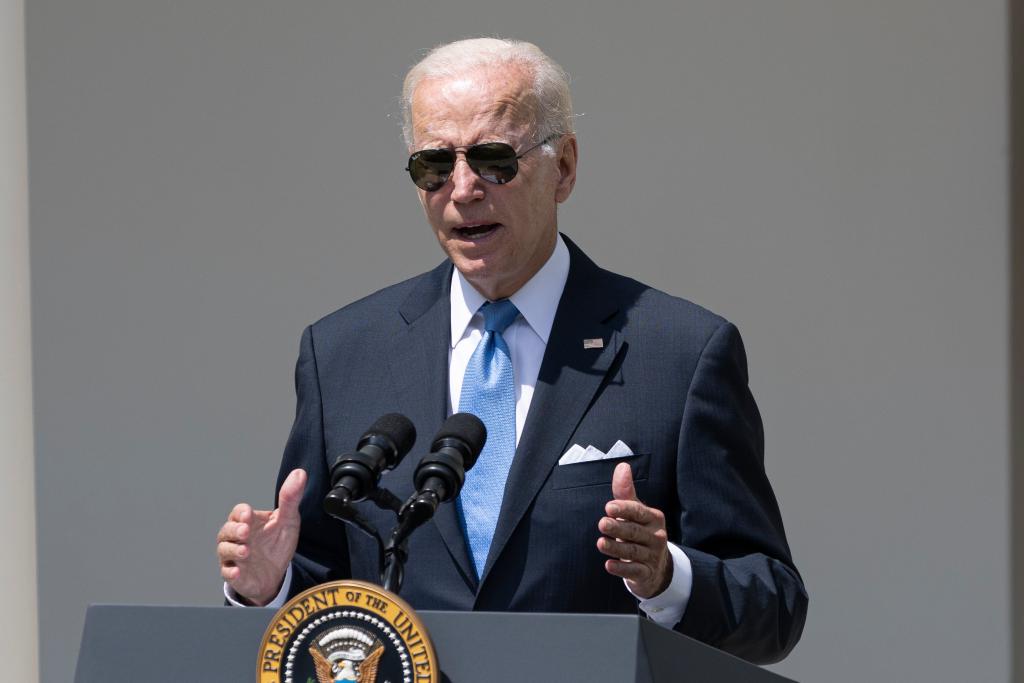
By Huang He and Deng Xianlai
A total of 321 heavy tanks have been promised to Ukraine by several countries, Ukraine's ambassador to France said on French TV station BFM recently. Germany and the US, which had been arguing before, announced on January 25 that they would provide tanks to Ukraine.
Analysts believe that many Western countries have taken a "unified stance" on the tank aid to Ukraine this time, and have upgraded their military aid to Ukraine by providing heavy assault weapons. This has exposed the US's calculation of fueling the flames from a safe distance to consolidate the "anti-Russian front" and its attempt to take the opportunity to strengthen its dominance over Europe and profit from the crisis. It has aroused the outside world's concerns about the continued deterioration of the Ukraine crisis.
Fueling the flames from a safe distance
When Biden announced the aid, he said that the move was made in response to the Ukrainian army's need to enhance its combat capabilities on open terrain. However, the US has previously opposed the provision of US-made tanks because of "complex operation, high operation cost, and difficulties in maintenance and training." After changing its attitude, the US has repeatedly hinted that the Abrams main battle tank will not arrive in Ukraine soon.
US Assistant Secretary of State Victoria Nuland said on January 26 that the Abrams tanks are very complex vehicles and require a lot of training, and it will take some time to get them to the battlefield. The Wall Street Journal also disclosed a few days ago that it will take several months or even longer for the Abrams main battle tank to be delivered to Ukraine.
Analysts pointed out that the US is making the gesture spuriously, but in fact, it is fueling the flames from a safe distance. The Associated Press said that the US had put pressure on its allies to provide more weapons, but it was being vague about the details of the delivery because it did not want to take the lead.
Former US Marine Corps intelligence officer Scott Ritter said the Abrams tanks may never show up in Ukraine because the conflict will be over by the time they are ready to ship, TASS reported.
Scheming and plotting
The US has its own calculations and schemes behind inciting its allies to provide Ukraine with tanks.
On the one hand, the US intends to consolidate the "anti-Russian front" by putting pressure on Germany. Aaron Maté, a host of the American independent news website The Grayzone, wrote on social media that the reason why the US urged Germany to provide tanks to Ukraine is to destroy the relationship between Berlin and Moscow. Western media such as Reuters believe that Russia may take advantage of this open disagreement between the US and Germany to weaken the "anti-Russian front" that the US has painstakingly managed. However, Germany's final decision is generally considered as a sign of joining the "anti-Russian front."
On the other hand, the US can strengthen its dominance over Europe by consuming European armaments. The Times published an opinion on January 26 that the debate between the US and Germany on whether to provide tanks to Ukraine once again shows that Europe needs to listen to the US. Alexander Bartosh, a corresponding member of the Russian Academy of Military Sciences, pointed out that the US forced European countries to send tanks to the battlefield, so that it can forcibly sell US-made tanks when European tanks perform poorly and their inventory level runs low, thereby consolidating Europe's security dependence on the US. Some analysts say that Germany's compromise proves that Europe is still far away from "strategic autonomy". The "unified stance" of many Western countries has aroused concerns about the escalation of the Ukraine crisis. Russian Foreign Ministry spokesperson Maria Zakharova pointed out on January 27 that the supply of tanks by the West to Ukraine will not change the situation, but will push the confrontation between the West and Russia to a new height. Russian President's Press Secretary Dmitry Peskov also said that the West's decision to provide Ukraine with tanks and other weapons has increased the tension in Ukraine. United Nations spokesperson Stéphane Dujarric said on January 27 that the UN advocates the establishment of a just peace in Ukraine in line with international law. But what we’re seeing now is not moving us in that direction, said Dujarric.
Editor's note: Originally published on news.cn, this article is translated from Chinese into English and edited by the China Military Online. The information and opinions in this article do not necessarily reflect the views of eng.chinamil.com.cn.













